China’s “neo-colonialism” became a popular topic again when Chinese Communist Party head Xi Jinping visited Africa in mid-March.
Neo-colonialism roughly means: China, exploiting Africa’s resources while disregarding the environmental impact, has also been dumping cheap industrial products into Africa.
China’s economic development has brought few job opportunities for Africans. What’s worse, China’s policy of “unconditional financial aid” and “not interfering with other countries politics,” has broken Western countries’ pattern of providing aid only when certain political requirements are met. This has loosened the reins on some African dictators.
The reason for the viral growth of China’s neo-colonialism in Africa is that Chinese businessmen have introduced the signature element of the China model—collusion between government and business—to Africa, using bribery in order to gain mining rights and market entry.
Fueled by Bribery and Corruption
Shortly before Xi’s visit to Nigeria, Lamido Sanusi, the country’s central bank governor, criticized China on the U.K.’s Financial Times for taking Africa’s primary goods and selling manufactured ones back to Africa, saying China is in Africa not for African interests but its own.
“This was the essence of colonialism,” Sanusi said, adding, “It is a significant contributor to Africa’s de-industrialisation and underdevelopment.”
South African president Jacob Zuma warned in 2012 that the trade pattern between Africa and China is “unsustainable in the long term.”
But such complaints from African governments are rare as benefits to state leaders are often tied to Chinese companies in various ways. Most objections come from grassroots groups.
Anti-corruption organization Transparency International surveyed 3,016 senior business executives from 30 countries on their perceptions of businesses from 28 countries that they had business relationships with.
Based on their ratings on how likely businesses from each country would pay bribes abroad, a Bribe Payers Index (BPI) was calculated for each country to reflect its perceived corruption level. China received the second lowest BPI, indicating the second highest corruption likelihood, after Russia.
The BPI covered 19 sectors, and included countries and regions from all key areas in the world. The 2011 BPI report also suggested that government-controlled high dollar volume industries, including infrastructure, construction, and petroleum and natural gas, are most susceptible to corruption abroad.
The Chinese government has refuted the BPI report, but reality proves that bribery and corruption has been the engine of China’s overseas business expansion.
Between 2008 and 2012, the World Bank’s Sanctions Board put 14 Chinese firms and individuals on its “debarred and cross-debarred list” for fraud and corruption. These firms and individuals were determined to be ineligible to be awarded a World Bank financed contract for two to eight years.
In 2009, the state-run Chinese mining firm Metallurgical Group Corp was accused of bribing the Afghan minister of Mines with $30 million to win the contract of the country’s largest development project.
On March 19, 2013, senior executives of Chinese telecom giant ZTE’s Mongolian branch were investigated on bribery charges. ZTE products and services have been deployed in more than 140 countries. In February, ZTE was accused of bribing officials in Kenya to win a government contract there.
In Algeria, ZTE executives were sentenced to 10 years in prison after being convicted of corruption in June 2012.
The majority of Chinese investment in Africa is in public infrastructure projects, mining and construction, and in almost every case the Chinese firms cleared the path with bribes. But why have only a few been publicized?
Kong Xiangren, an official of the Chinese Ministry of Supervision, explained in 2010. “Many [bribery] cases caught our attention and were investigated after they were discovered by local governments in the Unites States or Europe, especially those involving international business corruption,” Kong said. “This is because the bribing activities were well hidden.”
Boycott the ‘China Model’
Richard Dowden, director of the U.K. Royal African Society, once pointed out that China is more than ready to deal with African countries that are ruled by dictatorship. That’s because the communist regime likes its own kind.
Chinese entrepreneur researcher He Yifan, in a blog, cited the branch leader of an overseas construction company saying that in Nigeria corruption is done openly. When officials budget for projects, they include bribes to themselves as part of the cost. This is exactly what Chinese corrupt officials do.
African dictators driven by self-interest will not terminate the “resource diplomacy” with China because they have gained huge benefits from it.
Chinese aid to Africa—provided by various levels of government organizations, including the Ministry of Commerce and other ministries and provincial-level bureaus—for example, is extremely lacking in transparency.
High-ranking officials also have flexible quotas when they visit abroad. So the total aid amount is very hard to determine. This has covered up the corruption on both ends.
But more and more Africans are becoming more averse to the “savior from the east.” They complain about Chinese firms’ lack of consideration for the local ecology. Mining and lumbering seriously damage the ecology.
In addition, Chinese firms’ disregard for workers’ safety has caused frequent accidents and cost lives. There have even been incidents of Chinese employers killing African workers.
African businesses also complain that the Chinese government’s strong financial support of Chinese businesses has made it extremely hard for local firms to compete. Some accidents have also been reported as a result of poor quality construction of Chinese built roads and hospitals. The list goes on and on.
Despite such a terrible record, Chinese firms have been growing in Africa, because they have bribed local officials and inspectors to escape punishment. Their products, from food to bridges and roads, are often unsafe, but these firms often bribe officials or judges to avoid punishment in cases of complaints by consumers or environmentalists.
Few Chinese would doubt the credibility of the above, because Chinese businesses practice the same way in China. Business is conducted through collusion with the government and by bribing officials to obtain business opportunities and political protection.
They stop at nothing, damage the environment, generate false GDP numbers, run their work places with poor safety measures, disregard workers’ safety, and exploit workers as production tools. Here too, their products, from food to bridges and roads, are often unsafe, but by bribing officials or judges they avoid punishment.
The China model, marked by corruption, resource exploitation, and disregard of the environment and people’s wellbeing, has been spread to the world through overseas investments.
Ecuador is about to taste the bitterness as its government is planning to sell one-third of its Amazon jungle to a Chinese petroleum company. Seven local tribes there are fighting against the plan. I wished that the Ecuadorian people would learn from Africa’s lessons and keep Chinese firms out. That is the only way to save their homeland.
After being implemented in China for almost 30 years, the China model yielded a bloody and toxic GDP through abuse of the environment and Chinese people’s future, and has made China the world’s biggest billionaire cradle as well as the most polluted country with high cancer rates.
Zhu Houze, Chinas’s propaganda chief from 1985 to 1987, warned on his death-bed that the China model should not be spread overseas. “This model has harmed over a billion Chinese. We can’t go on to harm other countries,” he said.
China is now heavily reliant on foreign resources. It has to give up its current China model, which the world finds invidious, in order to obtain resources. Otherwise, one day the civilized world will unite against and boycott China. By then, China will turn from “orphan of Asia” to “orphan of the world.”
He Qinglian is a prominent Chinese author and economist. Currently based in the U.S., she authored “China’s Pitfalls,” which concerns corruption in China’s economic reform of the 1990s, and “The Fog of Censorship: Media Control in China,” which addresses the manipulation and restriction of the press. She regularly writes on contemporary Chinese social and economic issues.
First published in Human Rights in China Biweekly.
Read the original Chinese article.
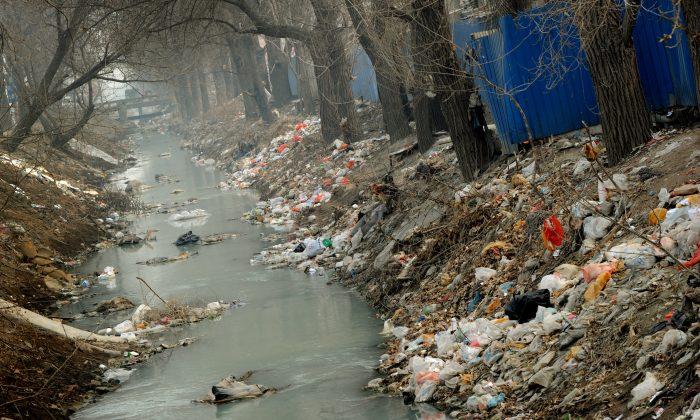

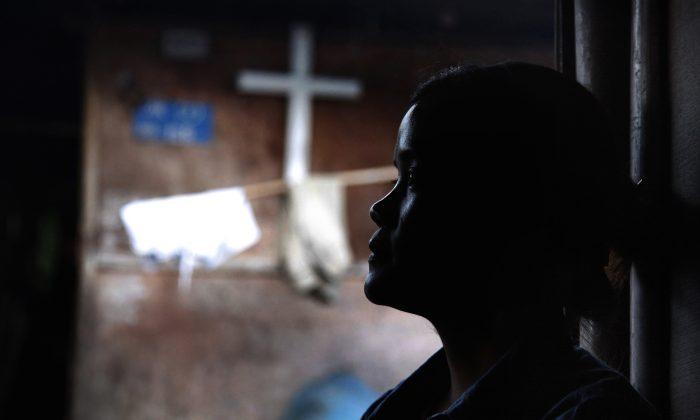
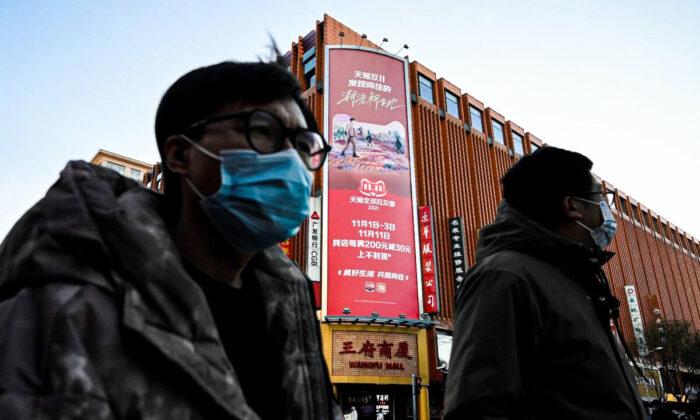
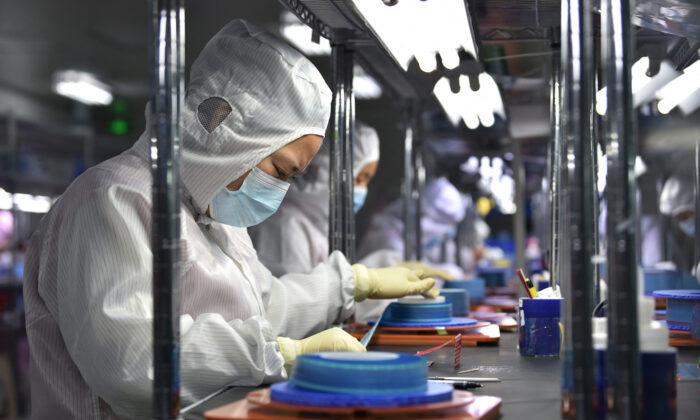
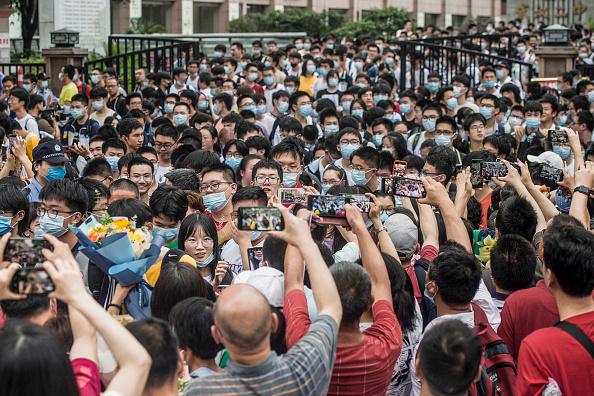
Friends Read Free